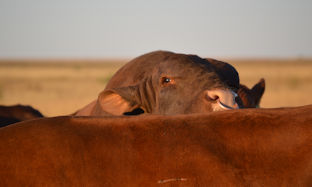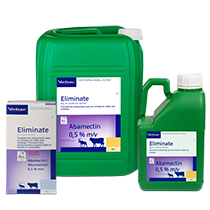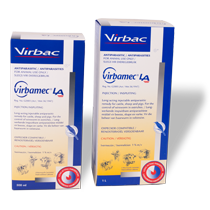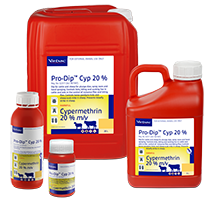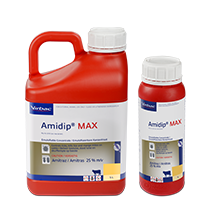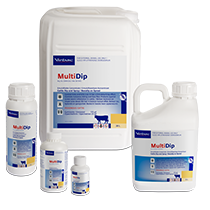
BEEF COW MANAGEMENT - PREBREEDING: Parasite control
Both internal and external parasites can have a detrimental effect on conception. In the run-up to the breeding season, cows should have no "competition" from internal or external parasites in order to recover maximally after calving.
1. Internal parasites:
Internal parasites in cattle are generally considered "less important". Although its adverse effect is not always as "visible" as in sheep, internal parasites can have a negative effect on the condition and performance of cows. A trial conducted by Dr Meaker (1994) showed the effect of deworming (roundworms) on the reproduction of first-calf heifers and second-calf cows. (Figure 1 & 2)
Figure 1. Effect on reproduction - 1st calving heifers
Figure 2. Effect on reproduction - 2nd calving cows
Liver fluke can result in huge economic losses. In addition to all the other essential functions of the liver, it also regulates the production of sex hormones - which is critical in the run up to the breeding season! In areas where liver fluke occurs, a strategic control program should be followed to reduce the effects of liver fluke.
2. External parasites:
Treat external parasites (especially ticks) as necessary to prevent/reduce the transmission of tick-borne diseases and mechanical damage to the udder and teats. A tick infestation can also negatively affect the appetite of cattle, which in turn can have a negative effect on milk production and the condition of cows.
Fly control will also reduce irritation, which has a negative effect on growth and condition.

